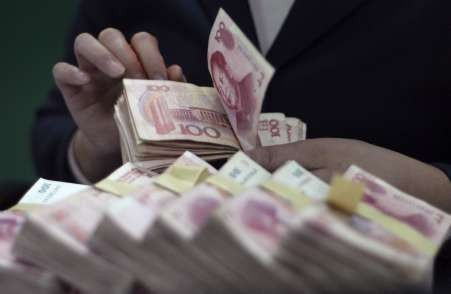China to expand investment options for overseas yuan holdings

Chinese Vice-Premier Li Keqiang said China will soon allow foreign investors to buy mainland securities using yuan up to an initial quota of 20 billion yuan ($3.1 billion), a move aimed at promoting international use of the Chinese currency.
Li did not say when the long-awaited scheme -- also known as mini-QFII -- would be launched, but it would give foreign investors holding yuan a crucial avenue to invest the currency, also known as the renminbi.
Many investors have been reluctant to hold too much yuan, despite China's solid economic growth and Beijing's drive to promote the currency, due to a paucity of attractive investment options.
The "mini QFII" scheme is named after the larger Qualified Foreign Institutional Investor programme (QFII), which allows foreign investors to invest in yuan-denominated stocks and bonds, after converting foreign currencies into yuan.
Li, who is in Hong Kong to promote Beijing's ties with the former British colony, also threw his weight behind the territory as the key offshore yuan trading centre.
"Hong Kong enjoys a natural advantage in the development of the offshore renminbi business," said Li, a protege of President Hu Jintao and widely tipped to succeed Premier Wen Jiabao as premier in 2013.
To match China's growing economic clout, Beijing wants the yuan to play a bigger role in international financial markets.
But China still keeps its capital account on a tight leash, and Hong Kong has been identified as Beijing's test bed for any cautious relaxation in capital controls.
He said Beijing would support the growth of the yuan market in Hong Kong, expand yuan circulation channels between Hong Kong and the mainland, and support the development of offshore yuan financial products in Hong Kong.
"Issuing renminbi treasury bonds in Hong Kong will be a long term institutional arrangement of the central government," Li said.
"We will gradually increase the size of insurance and work for the development and improvement of the renminbi bond market in Hong Kong," he said.
Reiterating Beijing's long-standing pledge to have the yuan play a bigger role over time, Li said exporters and importers across China would be allowed to settle trade in the yuan in future.
He said foreign companies would also be allowed to invest directly in China using the yuan.
$1 = 6.383 Chinese Yuan
© Copyright Thomson Reuters 2024. All rights reserved.




















